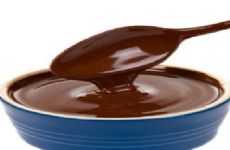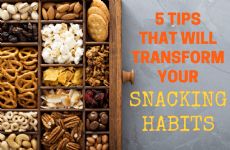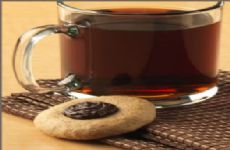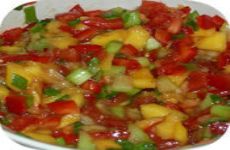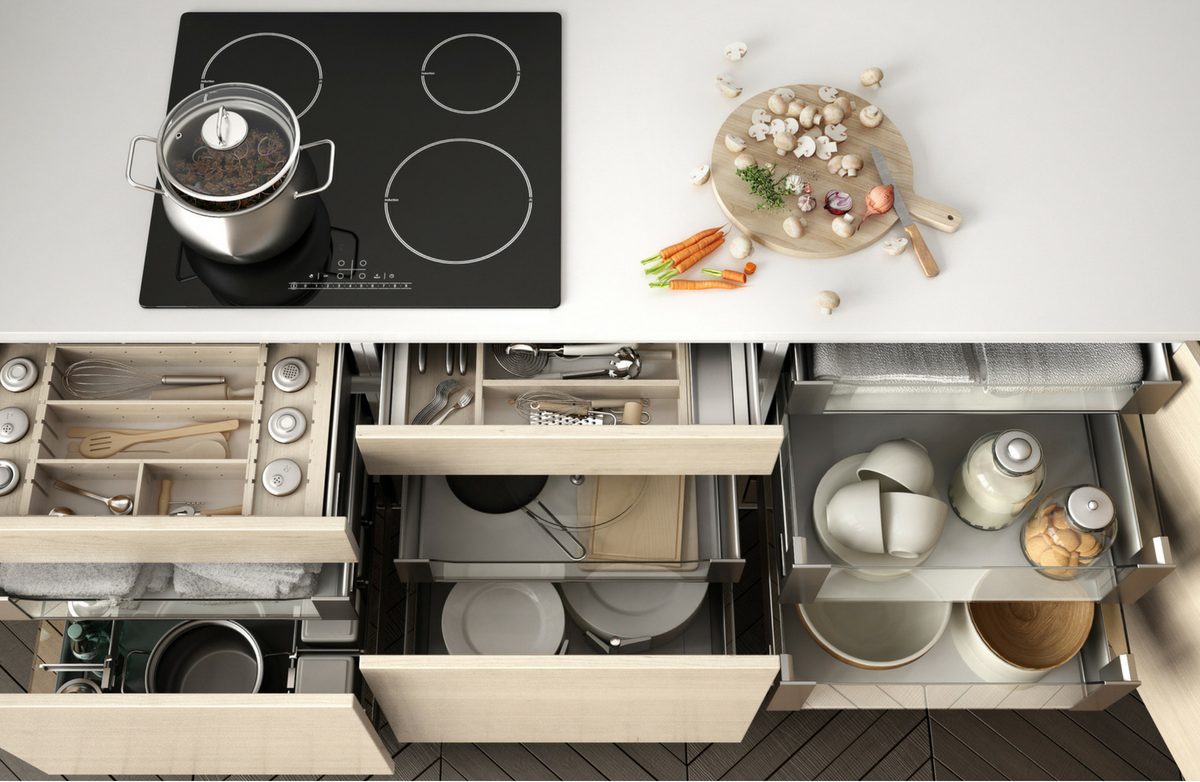A few decades ago, Americans consumed less than 10% of their daily calories in the form of drinks, but today we get 21% of our calories from beverages. For someone eating 2,000 calories a day, that's 420 calories a day in the form of drinks!
When you're trying to lose weight, you have fewer calories in your "budget" each day, which means you need to make all of them count. Those "empty" calories from sugary beverages are an easy place to cut back.
That said, one of the most common questions new SparkPeople members have is "Do drinks like coffee, tea or diet soda count toward my daily water quota?"
SparkPeople recommends eight to twelve cups of water daily, but for some people, drinking that much water can be difficult. Fruit juices, milk, teas and decaf coffee also count, as do flavored (unsweetened) waters, carbonated water, and water with fruit or herbs. So, yes, you can drink beverages other than water to meet your hydration needs, but there are a few things to consider before you start sipping.
Caffeinated beverages can actually increase your need for more water and dehydrate the body (caffeine is a diuretic) so a lot of caffeinated coffee or soda will not quench your thirst.
Artificially sweetened drinks, including diet sodas, can also count toward your quota. However, we recommend no more than four servings (32 ounces) of artificially sweetened beverages daily.
If you struggle to control your sweet tooth, you might want to avoid diet drinks. Preliminary studies suggest that high intakes of artificial sweeteners might affect appetite control (i.e. by eating more sweet foods—artificially sweetened or not—you crave more of them). Individuals who want to use artificial sweeteners should do so within the context of a sensible weight-management program that includes a balanced diet and regular exercise.
My personal opinion, particularly for people trying to lose weight, is to drink plain water whenever possible. I feel it helps to cleanse the body when weight loss and fat breakdown is occurring. I also know that it helps to keep the hands and mouth busy, to reduce the urge to snack. This is a form of behavior modification that can help break old habits (such as mindless eating) and replace them with ones (drinking water when boredom hits). Most people report feeling better when they consume at least a few glasses of plain old H2O each day. If you're going to consume caffeinated beverages or diet drinks, consume as much or more water to balance them out.
Other caloric beverages, such as juice, sports drinks, and milk, can be part of a healthy diet. SparkPeople uses the guidelines set by the American Journal of Clinical Nutrition, which were developed by the Beverage Guidance Panel in 2006. The experts on that panel stressed that a healthy diet should NOT rely on fluids to provide calorie or nutrient needs, and that water is necessary for metabolism and normal physiological function. In fact, water is the only fluid that the body truly needs.
Healthy Beverage Guidelines for Adults
- Consume 12 cups (96 ounces) of fluids per day.
- For an adult on the standard 2,200-calorie diet, no more than 200-300 calories should come from fluids.
- Adults consuming fewer than 2,200 calories should limit calorie-containing beverages even more—to less than 200 calories daily.
Use the following guidelines to evaluate your own beverage intake.
| Beverage | Nutritional Benefits/Warnings | Recommended Daily Consumption | Calories per Serving | | Water | When eating a healthy diet, water can meet all of your fluid needs. This is the ideal choice and what SparkPeople also encourages! | 2-6 servings
(16-48 ounces) SparkPeople recommends 8 cups of water daily * NOTE: Consume additional water if you limit other beverages. | 0 | | Unsweetened Coffee and Unsweetened Teas | Coffee has some limited health benefits, while tea provides a variety of flavonoids and antioxidants. Both contain caffeine, which should be limited to less than 400 milligrams daily (or less than 300 mg for pregnant and breastfeeding women). | Up to 6 servings
(48 ounces) | 0 | Low-Fat (1%) or Skim (fat-free) Milk and Unsweetened/Fortified Non-Dairy Milks
| Milk is an important source of calcium, magnesium and potassium. Through fortification, it is also a good source of vitamin D. Fortified non-dairy milks are good alternatives with many of the same benefits. | <2 servings
(0-16 ounces)
| 85-100 | Non-Caloric, Artificially-Sweetened Beverages (Diet Soda, Diet Drinks, and Artificially-Sweetened Drinks, Teas and Coffees)
| Although the Food & Drug Administration has approved non-caloric sweeteners as safe, some studies suggest that diet drinks condition adults to have a higher preference for sweets. These teas and coffees also contain caffeine. (See above for guidelines.) | <4 servings
(<32 ounces) | 0 |
| Caloric Beverages with Some Nutritional Benefits | Nutritional Benefits/Warnings | Recommended Daily Consumption | Calories per Serving | | 100% Fruit & Vegetable Juices and Smoothies | These provide nutrients in their natural state but lack fiber and some of the nutrients that are found in whole fruits and vegetables, which should be eaten for satiety and caloric balance. | <1 serving
(8 ounces)
| 50-150 | | Sports Drinks | These are designed to replace electrolyte (sodium, chloride, and potassium) levels that are diminished during endurance events | For the Average Person: Drink rarely
For Endurance Athletic Events (strenuous activity that lasts over 90 minutes): Up to 2 servings (16 ounces) | 0-40 | | Whole Milk and 2% Milk | These drinks contain a significant amount of calories, fat, and saturated fat, so they are not recommended. | Not recommended | 120-160 | | Sweetened or Flavored Low-Fat Milk | Such beverages contain the same nutrients as low-fat dairy products (Level 3) but have more calories due to the added sweeteners. | Very rarely | 150-160 | | Alcoholic Beverages | When consumed in moderation, alcohol has some health benefits for adults, including reduced risk of cardiovascular disease, Type 2 diabetes, and gallstones. Moderate intake of alcoholic beverages has been linked to an increased risk of breast cancer, while excessive alcohol consumption causes serious health and social problems. Pregnant women should NOT drink alcoholic beverages due to the increased risk of birth defects. | for Women: 0-1 serving
for Men: 0-2 servings
One serving is: 12 ounces of beer, 5 ounces of wine, or 1.5 ounces of distilled spirits
| 100-200 | | Caloric, Sweetened Beverages without Nutritional Benefits (Soft drinks, fruit drinks, fruit punch, fruit cocktail, fruit aid, and caloric/sweetened teas and coffees) | none | 0-1 serving (8 ounces)
| 75-130 |
Learn more about how much water you need:
Water is a Secret Ingredient
12 Tips to Drink 8 Cups a Day
Healthy Beverage Guidelines
|
|

.png)




